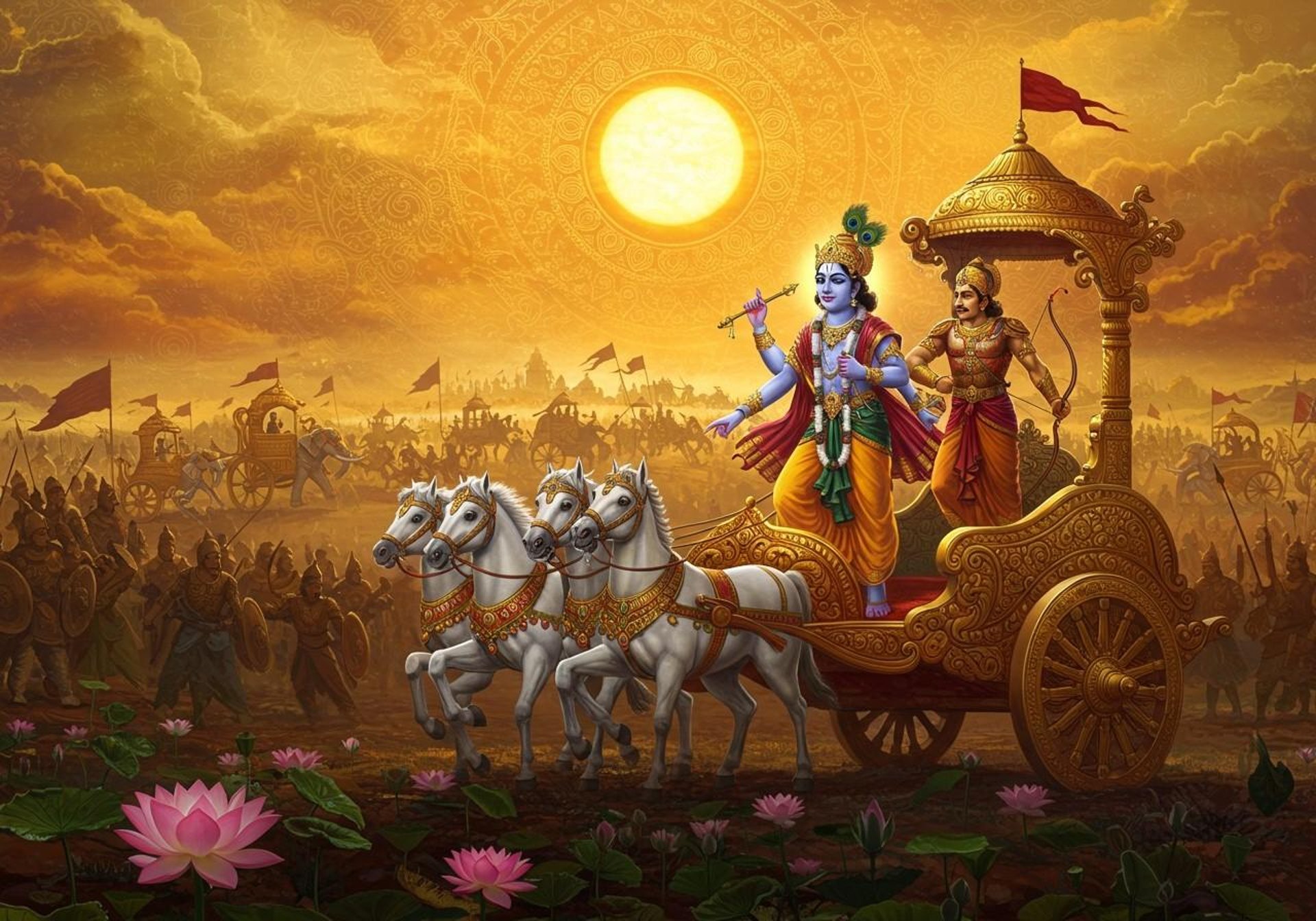Discover divine wisdom, guided meditations & powerful mantras at Spiritual Khazana—your sacred space for inner peace & enlightenment.
Hinduism is blessed with a vast collection of sacred texts that encompass philosophy, ethics, devotion, and practical living. These scriptures are not just religious texts but eternal guides for truth-seekers. Below is a curated list of major Hindu scriptures along with their essence:
1. The Vedas: The Foundation of Divine Knowledge
Oldest sacred texts, considered Shruti (heard directly from the Divine). Four Vedas: Rigveda, Yajurveda, Samaveda, Atharvaveda. Contain hymns, rituals, and cosmic principles. Key Teachings: Universal harmony, devotion, and the pursuit of truth (*Satya*).
2. Upanishads: The Philosophical Essence
Also part of Shruti, forming the end (*Vedanta*) of the Vedas. Explore profound concepts like Brahman (Ultimate Reality), Atman (Soul), and Moksha (Liberation). Famous Upanishads: Bhagavad Gita (Isha, Katha, Mandukya, Brihadaranyaka).
3. Bhagavad Gita: The Song of the Divine
A 700-verse dialogue between Krishna and Arjuna. Core Teachings: Dharma, Karma Yoga, Bhakti Yoga, Jnana Yoga. Key Message: "Perform your duty without attachment to results." (Gita 2:47)
4. Puranas: Mythological & Moral Scriptures
18 Major Puranas (e.g., Vishnu Purana, Shiva Purana, Bhagavata Purana). Contain stories of gods, sages, and cosmic cycles (*Yugas*). Teach moral values through narratives.
5. Ramayana & Mahabharata: Epics of Righteousness
Ramayana (Valmiki): Life of Lord Rama, ideal king, and Dharma. Mahabharata (Vyasa): Includes the Bhagavad Gita; teaches duty, justice, and ethics.
6. Dharma Shastras: Codes of Righteous Living
Texts like Manu Smriti, Yajnavalkya Smriti. Guidelines on personal conduct, social duties, and spiritual discipline.
7. Yoga Sutras of Patanjali: The Science of Mind & Meditation
196 aphorisms on Ashtanga Yoga (8 limbs of Yoga). Path to self-realization through Yama, Niyama, Asana, Pranayama, Pratyahara, Dharana, Dhyana, Samadhi.
8. Bhakti & Tantra Texts
Narada Bhakti Sutra: Essence of devotion (*Bhakti*). Tantras: Teach spiritual practices for awakening energy (*Shakti*).
9. Modern Interpretations & Commentaries
Works by Adi Shankaracharya, Ramanuja, Swami Vivekananda, Sri Aurobindo. Simplified explanations for contemporary seekers.
How to Study Sacred Texts?
Begin with the Bhagavad Gita for practical wisdom. Read Upanishads for deep philosophical insights, Explore Puranas for devotional stories, Practice Yoga Sutras for meditation techniques.
Why Read Sacred Texts?
Gain clarity on life’s purpose. Learn ethical and spiritual discipline. Discover inner peace and universal truths.
Final Thought
Hindu scriptures are not just ancient texts but living guides that illuminate the path to truth, righteousness, and liberation. Whether you seek philosophical wisdom, practical life lessons, or devotional inspiration, these sacred texts offer timeless answers.
"The Vedas are the ocean of wisdom; dive deep to discover the pearls of truth." Explore More: [Recommended Translations] | [Study Groups] | [Daily Scripture Quotes]**


Hindu Scriptures: Volumes, Chapters & Online Availability
1. Upanishads
Total Count: Traditionally 108 Upanishads, of which 10–13 are considered the principal (Mukhya) Upanishads Reddit+9Study.com+9gita.givevacha.org+9vedicheritage.gov.in+9Wikipedia+9os.me - A Spiritual Home+9.
These are primarily affiliated with the four Vedas:
Rigveda – 10
Samaveda – 16
Shukla Yajurveda – 19
Krishna Yajurveda – 32
Atharvaveda – 31 vedicheritage.gov.in+2os.me - A Spiritual Home+2Wikipedia+2.
Estimated Total: Some traditions suggest up to 200 or more Testbook+3Yoga exercises | Miami Beach, FL+3vedicheritage.gov.in+3.
Top 10 Mukhya Upanishads: Isha, Kena, Katha, Prashna, Mundaka, Mandukya, Taittiriya, Aitareya, Chandogya, Brihadaranyaka Wikipedia+8vedicheritage.gov.in+8Gita Society+8.
Where to Read:
Vedicheritage.gov.in – PDF listing of all 108 Upanishads Wikipedia+14vedicheritage.gov.in+14os.me - A Spiritual Home+14.
Sacred-texts.com and Archive.org host translations with commentary.
2. Bhagavad Gita (Part of The Mahabharata)
Chapters: 18
Verses: Generally 700 shlokas (some rare manuscripts mention 701–745) Ultimate Pop Culture.
Where to Read:
Gita.givevacha.org – Hindi & English shlokas with meanings Ultimate Pop Culture+3Wikipedia+3Wikipedia+3Reddit+5gita.givevacha.org+5VivekaVani+5.
VivekaVani.com – Chapter-wise PDF VivekaVani+1Testbook+1.
3. Ramayana (Valmiki’s Ramayana)
Volumes (Kandas): 7 (Bala, Ayodhya, Aranya, Kishkindha, Sundara, Yuddha, Uttara)
Estimated Verses: Around 24,000 ślokas gita.givevacha.org+1Study.com+1.
Where to Read:
GitaPress publications (free PDFs)
Cultural India websites
4. Mahabharata
Volumes (Parvas): 18 major Adhyayas + Harivamsa supplement
Estimated Verses: Over 100,000 ślokas
Includes the Bhagavad Gita as part of Bhishma Parva.
Where to Read:
GitaPress eds
5. Bhagavata Purana (Srimad Bhagavatam)
Cantos (Skandhas): 12
Chapters: 335
Verses: ~18,000 ślokas YouTubeUltimate Pop Culture+2Ramanisblog+2Wikipedia+2vedicheritage.gov.in+9Wikipedia+9Unacademy+9Wikipedia.
Where to Read:


Sacred Texts: The Divine Wisdom of Hinduism

